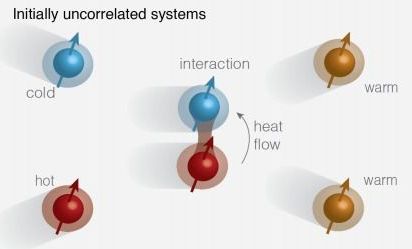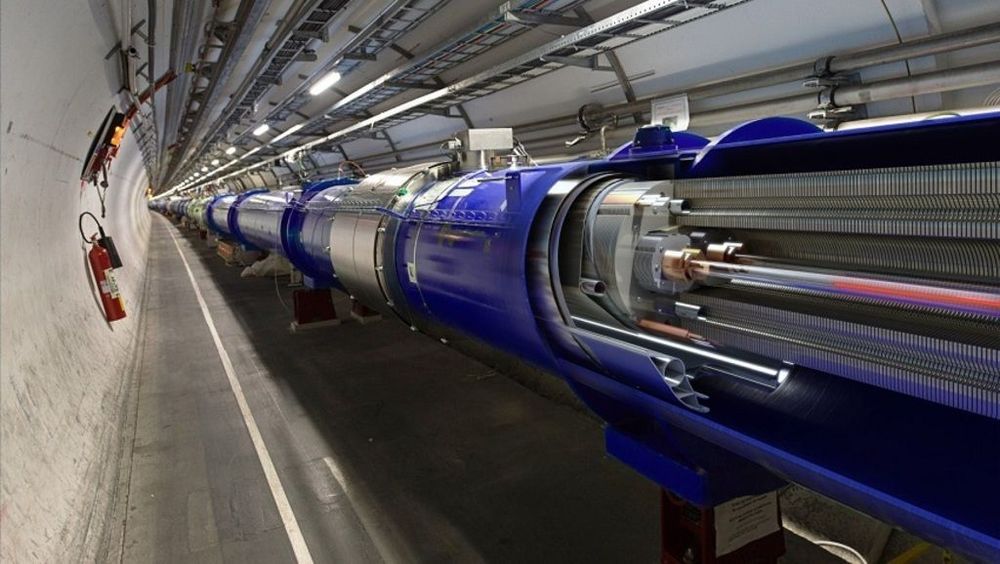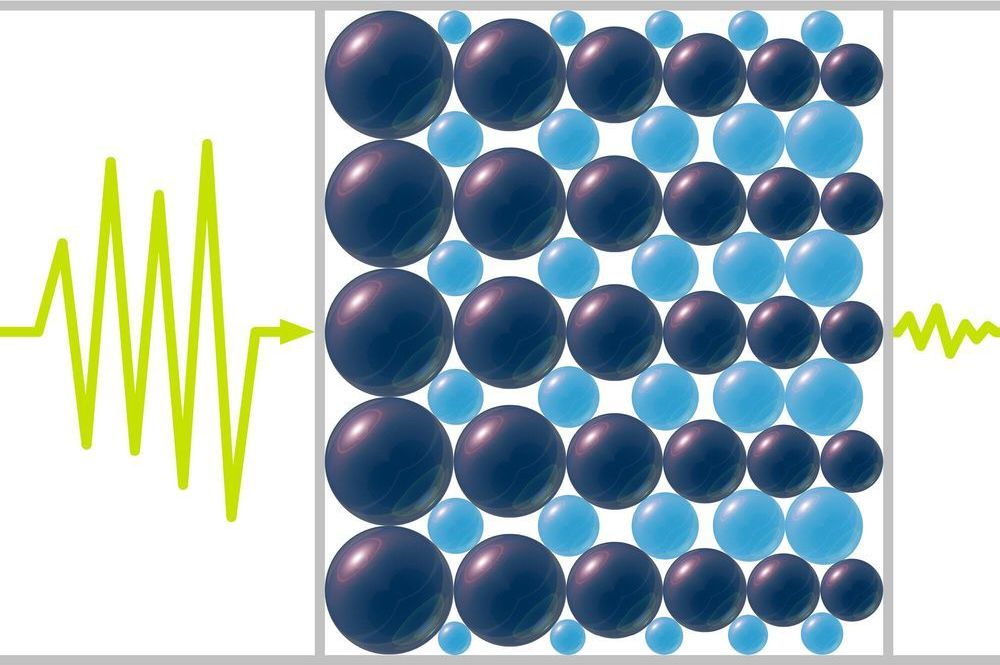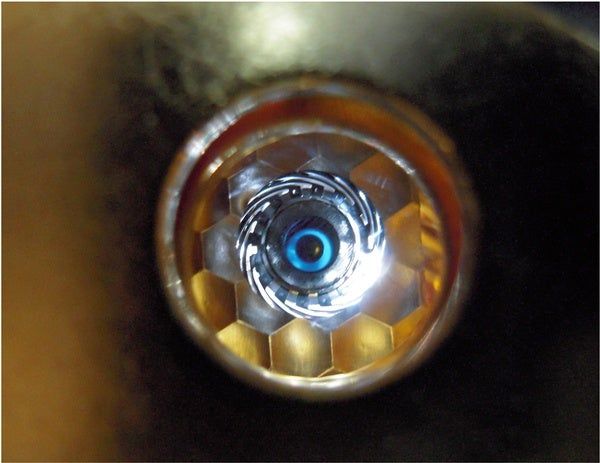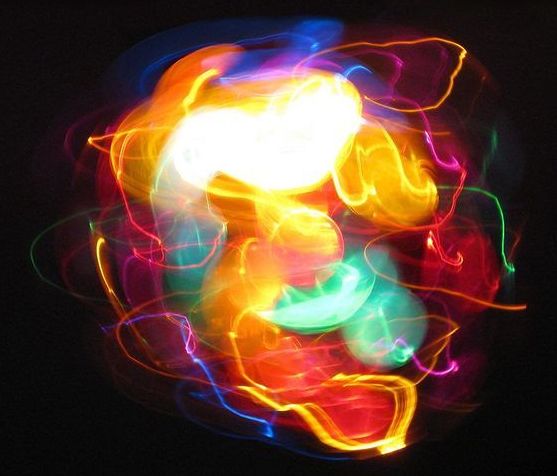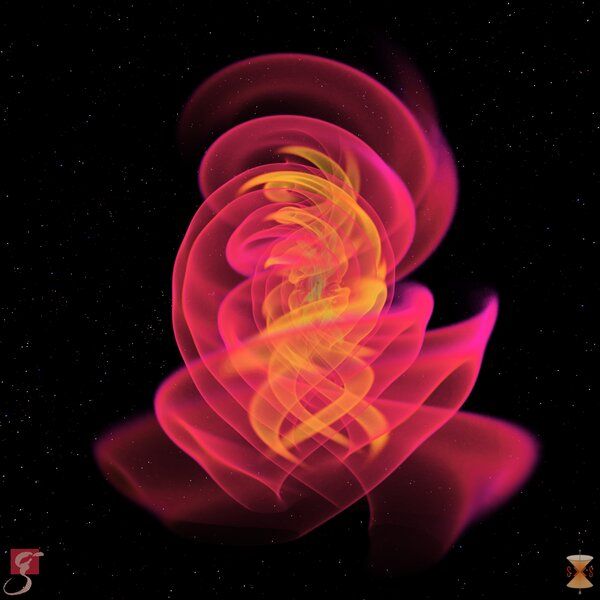Archive for the ‘physics’ category: Page 217
Mar 27, 2020
Physicists have demonstrated how to reverse of the arrow of time
Posted by Quinn Sena in category: physics
Circa 2017 face_with_colon_three
The extraordinary experiment opens the door to a new generation of devices and reveals a deeper relationship between time, entropy, and entanglement.
Mar 24, 2020
Snap cooled muons could beat LHC at its own game
Posted by Quinn Sena in category: physics
Essentially this can lead to euclidean geometry in programming essentially allowing near infinite decompression either in programming or in devices or even spaceships.
In physics and mathematics, in the area of vector calculus, Helmholtz’s theorem,[1][2] also known as the fundamental theorem of vector calculus,[3][4][5][6][7][8][9] states that any sufficiently smooth, rapidly decaying vector field in three dimensions can be resolved into the sum of an irrotational (curl-free) vector field and a solenoidal (divergence-free) vector field; this is known as the Helmholtz decomposition or Helmholtz representation. It is named after Hermann von Helmholtz.[10]
As an irrotational vector field has a scalar potential and a solenoidal vector field has a vector potential, the Helmholtz decomposition states that a vector field (satisfying appropriate smoothness and decay conditions) can be decomposed as the sum of the form − ∇ ϕ + ∇ × A {\displaystyle -\nabla \phi +\nabla \times \mathbf {A} }
Mar 21, 2020
Cold plasma nuclear fusion method
Posted by Quinn Sena in categories: nuclear energy, physics
[en] In order to continue cold nuclear fusion reaction reliably and easily, gases of deuterium or deuterium compounds are introduced to a plasma reaction vessel and electric energy is applied to convert the gases into plasmas. Further, deuterium ions are attracted to the surface of materials which cause nuclear fusion by an electric field which is negatively self-biased or externally biased. Atomic deuterium collides against the surface of a cathode on the side of palladium to cause nuclear fusion reaction at the surface or the vicinity of the inside of the cathode. Since a metal absorbing a great amount of deuterium is used as the material for the cathode in order to improve the efficiency and the absorption is increased at a low temperature, the cathode is cooled by liquid hydrogen. Further, the deuterium is introduced in the form of blowing so as to increase the absorption of the deuterium. When the scale is increased by 10 to 1000 times, practical fusion reaction can be caused to utilize as a controllable energy source which can provide a remarkable industrial effect. (N.H.)
Primary Subject
Mar 19, 2020
Physicists propose new filter for blocking high-pitched sounds
Posted by Quinn Sena in categories: health, physics
Need to reduce high-pitched noises? Science may have an answer.
In a new study, theoretical physicists report that materials made from tapered chains of spherical beads could help dampen sounds that lie at the upper range of human hearing or just beyond.
The impacts of such noises on health are uncertain. But some research suggests that effects could include nausea, headaches, dizziness, impaired hearing or other symptoms.
Mar 19, 2020
Superfast, Superpowerful Lasers Are About to Revolutionize Physics
Posted by Quinn Sena in categories: physics, space
They’ll serve as the heart as “discovery factories” for planetary science, astrophysics, materials physics, fusion and more.
One of the latest discoveries from the LHC takes the properties of photons beyond what your electrodynamics teacher will tell you in class.
Mar 15, 2020
Fusion Energy Solution May Come From Permanent Magnets Like Those on Refrigerator Doors – But Far Stronger
Posted by Quinn Sena in categories: food, nuclear energy, physics, space
Permanent magnets akin to those used on refrigerators could speed the development of fusion energy – the same energy produced by the sun and stars.
In principle, such magnets can greatly simplify the design and production of twisty fusion facilities called stellarators, according to scientists at the U.S. Department of Energy’s (DOE) Princeton Plasma Physics Laboratory (PPPL) and the Max Planck Institute for Plasma Physics in Greifswald, Germany. PPPL founder Lyman Spitzer Jr. invented the stellarator in the early 1950s.
Most stellarators use a set of complex twisted coils that spiral like stripes on a candy cane to produce magnetic fields that shape and control the plasma that fuels fusion reactions. Refrigerator-like permanent magnets could produce the hard part of these essential fields, the researchers say, allowing simple, non-twisted coils to produce the remaining part in place of the complex coils.
Mar 15, 2020
Researchers find gravitational wave candidates from binary black hole mergers in public LIGO/Virgo data
Posted by Saúl Morales Rodriguéz in categories: cosmology, physics
Researchers from the Max Planck Institute for Gravitational Physics (Albert Einstein Institute; AEI) in Hannover together with international colleagues have published their second Open Gravitational-wave Catalog (2-OGC). They used improved search methods to dig deeper into publicly available data from LIGO’s and Virgo’s first and second observation runs. Apart from confirming the ten known binary black hole mergers and one binary neutron star merger, they also identify four promising black hole merger candidates, which were missed by initial LIGO/Virgo analyses. These results demonstrate the value of searches in public LIGO/Virgo data by research groups independent of the LIGO/Virgo collaborations. The research team also makes available its complete catalogue in addition to detailed analysis of more than a dozen possible binary black hole mergers.
“We incorporate cutting edge methods,” says Alexander Nitz, a staff scientist at the Max Planck Institute for Gravitational Physics (Albert Einstein Institute) in Hannover, who led the international research team. “Our improvements enable discovering fainter binary black hole mergers: the four additional signals show that this works!”
The results were published in The Astrophysical Journal today.

